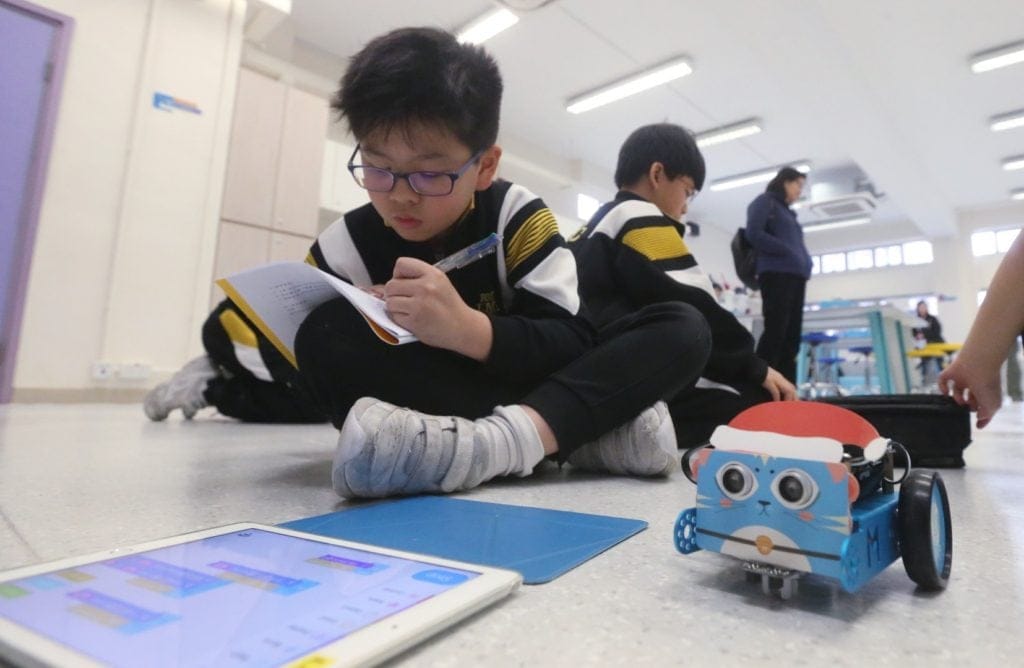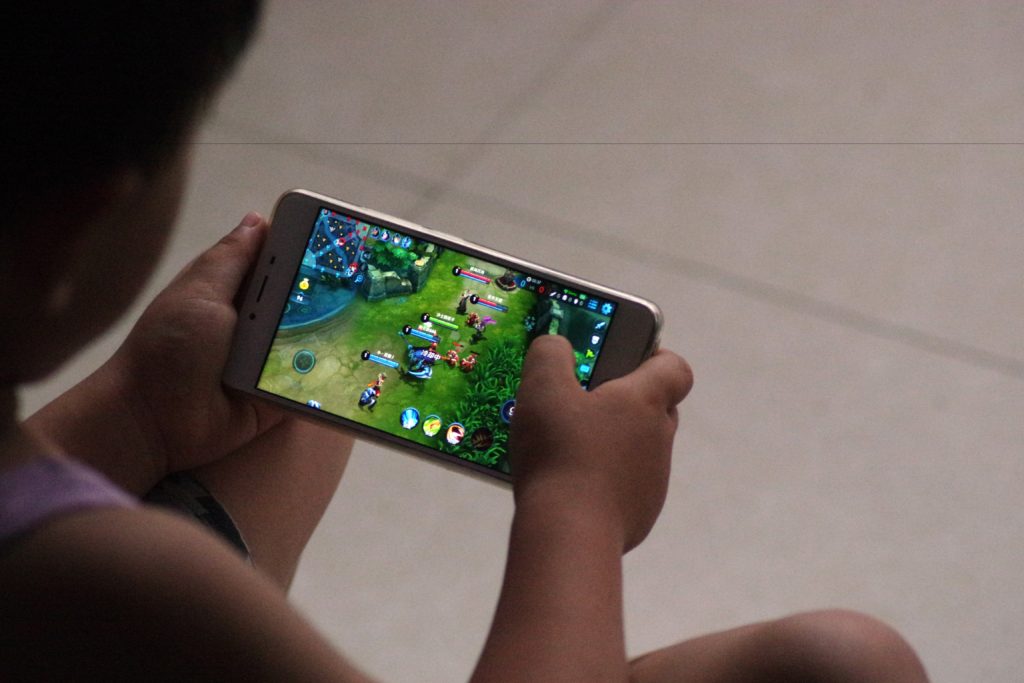Generation Z refers to those youths who were born in 2000. According to a report by the OC&C Strategy Consultants, Generation Z makes up 30 percent of the global population and about 20 percent in China.
Obviously, for better business performance in China, I definitely consider Generation Z another upcoming crucial customer segment, after Millennials (Generation Y), since this generation is gradually growing to be a significant consuming power in China market, leading new consumers and boosting consumption.
To help you understand more about Chinese Generation Z, I’m going to show you 6 things they love to do nowadays.
1. The “Second Dimension”, Inspired by Japanese Anime Culture

If you see some Chinese teenagers dressing in exotic apparel on the street, don’t be surprised because they are just cosplaying their favorite animated characters, immersing themselves in a world what Chinese youth call the “second dimension”. The closest English parallel is the ACG, Animation-Comic-Gaming sector. And I’m sure 99 percent of them are Generation Z.
The “second dimension” culture, inspired by Japanese anime culture, is being extremely popular among Chinese Generation Z groups.
It is reported that the size of this culture in China has become huge. There is around 300 million “second dimension” related online users and up to 83.94 percent of them are aging under 24 years old, regularly producing related content such as commentaries, reaction videos, cosplay guides, music videos, and so on.
The video website Bilibili, sometimes called “B-Station” by Chinese youths, is the central web hub for “second dimension” content.
(I’ve written an article about if Bilibili is the Chinese Youtube alternative, feel free to go check it)
According to one recent quarterly report, 77.5 million unique users visit Bilibili every month, each spending an average of 75 minutes every day on the site.
In Chinese campuses, various anime school clubs are emerging, from high schools to colleges.
Youths are enthusiastic about those clubs’ activities and spend lots of time practicing dance called spica, preparing costumes for cosplay, rehearsing shows, and so on.
Chinese Generation Z thinks living in the “second dimension” world can make them feel more connected and the community there is exclusive, helping them escape those foul things in their real life.
2. Prevailing Street Style

Nowadays, if you’re living in China, you definitely can tell that the hip-hop culture is prevailing and Chinese Gen Zers are strongly being affected by it.
They are now more preferring streetwear brands like Ape, Stussy, Supreme, Air Jorden, etc., and love learning hip-hop stuff like street dance, rapping, graffiti, and skateboarding.
I think most Chinese Gen Zers don’t understand what hip-hop culture really is. But it doesn’t matter, they just like being looked like “hip-hop”, wearing sweaters and caps and behaving swag, so it would be better to say most of them are just pursuing the fashion of street style.
How is hip-hop introduced to Chinese people?
For a very long time, Hip-hop culture has remained basically an underground art form since there are very few ways for the Chinese to contact it.
In the past, whenever you were doing something related to hip-hop culture, such as wearing fat-size clothing, street dancing, skateboarding on the street, etc., other people will view you as a weirdo.
The elements of hip-hop culture were just too exotic and strange to the regular people at the time.
However, The TV show “Rap of China” changes everything. It absolutely can be considered one of the most phenomenal television works in modern history because it has utterly changed the lifestyle of the Chinese young generation, including Gen Z.
The explosion of “Rap of China” is unprecedented! After releasing this TV show, Chinese people were suddenly obsessed with rap music, wearing sweaters and caps, talking about hip-hop culture, etc.
Afterward, several other types of hip-hop-related shows, like “Rap of China” and “Street Dance of China”, “Dunk of China”, are prevailing to date, further affecting the younger generation’s minds and preferences.
Nowadays, please don’t be surprised if you see kids cruising on the street with skateboards, or there is a group of young students practicing breaking in an open space. They are just regular parts of Chinese Generation Z life now.
3. Embracing the Computer Science

Generation Z is a group of people who better understands the modern digital world. Unlike the older generation who are just enjoying the benefits of the internet, Gen Zers start to study the inside of the internet world.
They’re no longer satisfied with simply using it but trying to learn it and then create something new for other people. This is also happening in China.
Chinese Generation Z is not just a bunch of youths who only care about entertainment, but also care about the future.
Generation Z is born in an environment that has been fully surrounded by various digital devices and technologies so there are increasingly young people starting to be interested in computer science and proactively learning coding which is going to be another key language in the near future. This trend can be seen in the blossoming of K12 programming courses in China.
On the other hand, programming has definitely become one of the most promising sectors in China’s education industry.
(In my article “How is the STEAM Education in China“, I’ve talked about the children’s programming business in China, feel free to check it.)
It’s not only an important curriculum in schools but also helps kids develop logical thinking, which is why programming becomes Chinese parents’ new favorite subject.
Chinese parents of Gen Z sent their kids to after-school tutoring courses for programming since they’re convinced that the current wave of enthusiasm in China for AI (Artificial Intelligence) is strong and that coding skills will play a more critical role in the future, making nowadays Gen Z possess solid knowledge of computer science.
4. Crazy Idolization

Chinese Generation Z is a group of people obsessed with idolization. Living in this highly digitalized world, Gen Zers are so good at using internet power to create a strong influence for their idols so they are becoming probably the most powerful groups in the industry.
I’m sure some of you remember how Chinese pop star Kris Wu beat American pop star Ariana Grande and took the No. 1 spot on the iTunes single-chart. This is how powerful Chinese fans are. They are willing to do anything just for supporting their idols and this iTune event was organized by Kris Wu’s Chinese fans who spent their own money to push Kris Wu up the US charts.
Chinese Gen Z consists the most parts of those Chinese crazy fans. They are willing to spend time and money on organizing fan clubs and offline events to support their idols.
For example, the reality TV shows “Idol Producer” made by iQIYI, and “Produce 101” made by Tencent Video was attracting numerous Chinese youth generating a totally of over 60 million RMB, which is stunning.
Another crazy example is that the fans of the Chinese boy band TFBOYs have bought up the entire run (120.000 copies) of the Harper’s Bazaar magazine issue featuring a member on the cover and purchased billboards in Time Square of New York City for celebrating another member’s birthday.
The most important point is that most of those fans are still students and have zero economic ability. is it surprising you?
5. Learning multiple languages

Generation Z doesn’t consider English the only language they should learn anymore. In fact, as various cultures are being exported from different countries and getting popular in China, those countries’ languages are becoming important.
For example, the anime culture from Japan is being viral among Chinese Generation Z, so there are many Chinese youths who are proactively learning Japanese in their spare time, even though it’s not a demanded language course.
Another example is the Korean language. K-pop is another prevailing culture in China. From Korean TV series and movies to Korean pop stars, Chinese youths are obsessed with them. Some crazy Chinese fans are willing to learn the Korean language by themselves just for enabling to communicate with their idols.
Even for non-traditional languages like programming language. More and more young people are getting involved in the coding study since they’ve realized the coding power for the digitalized world and development of the future.
From those instances, we can tell that the Chinese Generation Z is increasingly being aware that the capacity of communication would be the key in the current globalized environment.
For better communication skills, language learning is inevitable, so, unlike the older generation who only considers language the curriculum necessary or professional skills, Chinese generation Z thinks the language of tools to discover the world.
They don’t feel learning a language is tedious but joyful because they know it will help them pursue what they’re interested in.
6. Mobile Game Addiction

Do you know a third of China’s enormous population plays mobile games? According to a new report from China’s Game Publishing Committee, a third of China’s enormous population plays mobile games, which is equal to 459 million people in all. You should know that the United States only got around 327 million people.
Among those mobile gamers, more than half are teenagers, aged below 24 years old. The Chinese Gen Z getting addicted to mobile games has become a serious problem in China.
Parents and teachers are complaining that children were spending a large number of time on multiplayer online battle games, which might cause some terrible issues.
If you enter a drink store like HEYTEA or Starbucks, you will see there are so many teenagers sitting on chairs and playing mobile games with friends for multiple hours. Nowadays this kind of drink store seems to become the “new internet bar” from my perspective.
Some mobile game developers, such as Tencent which has developed the game “Glory of Kings, and Netease which have developed the game “YinYang Master”, have taken action, limiting playtime for some young users.
Users aged between 12 and 18 are limited to two hours of playtime each day, while those aged below 12 years old are limited to one hour a day and banned from logging in after 9 pm.
It does slow down the growth of teenagers’ gaming behaviors, but still, Chinese Gen Zers just can find many ways to fight the rules, such as borrowing other adults’ ID cards to apply the gaming accounts and continue contributing to the market, making China the world’s largest gaming market.

